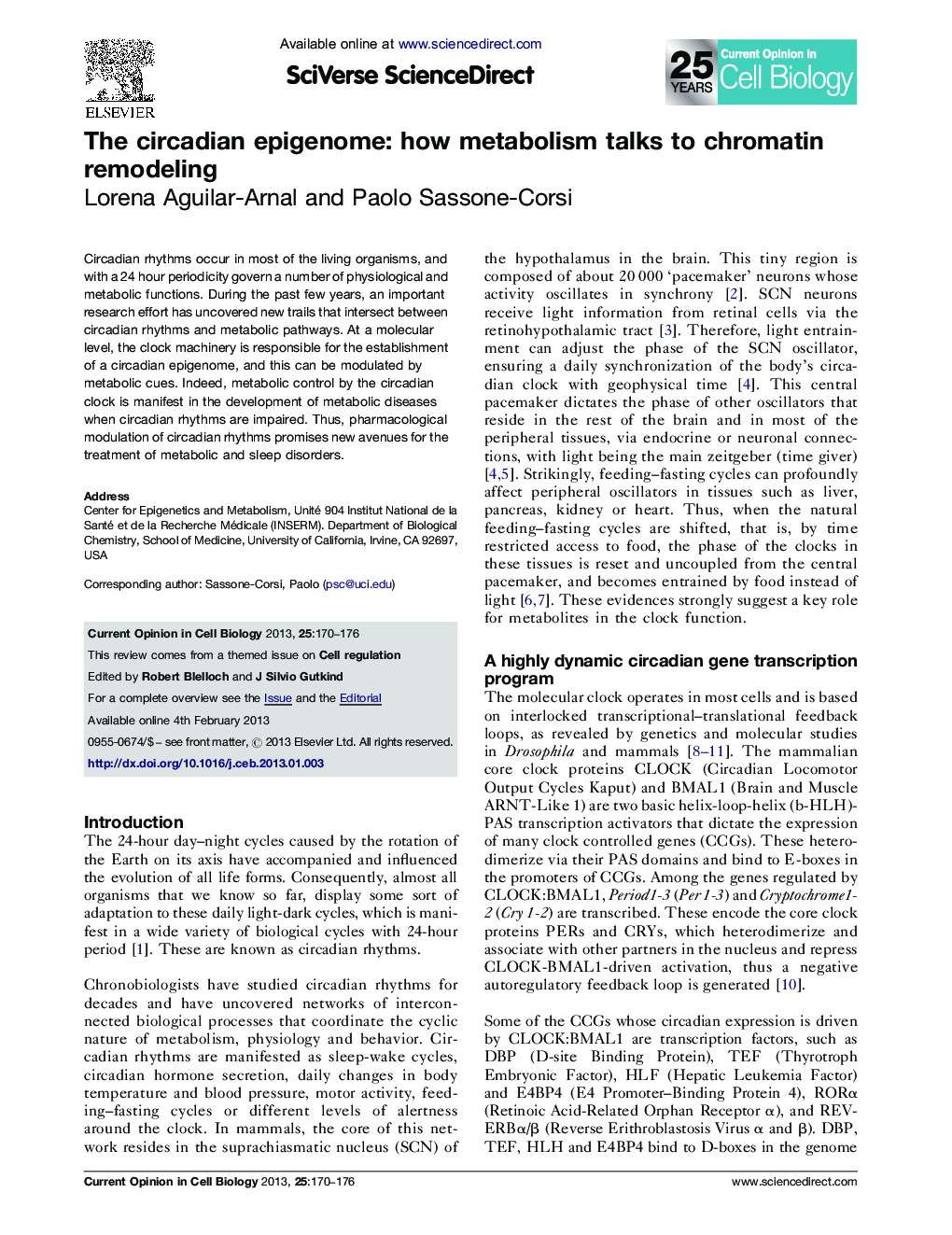| Article ID | Journal | Published Year | Pages | File Type |
|---|---|---|---|---|
| 2169734 | Current Opinion in Cell Biology | 2013 | 7 Pages |
Abstract
Circadian rhythms occur in most of the living organisms, and with a 24 hour periodicity govern a number of physiological and metabolic functions. During the past few years, an important research effort has uncovered new trails that intersect between circadian rhythms and metabolic pathways. At a molecular level, the clock machinery is responsible for the establishment of a circadian epigenome, and this can be modulated by metabolic cues. Indeed, metabolic control by the circadian clock is manifest in the development of metabolic diseases when circadian rhythms are impaired. Thus, pharmacological modulation of circadian rhythms promises new avenues for the treatment of metabolic and sleep disorders.
Related Topics
Life Sciences
Biochemistry, Genetics and Molecular Biology
Cell Biology
Authors
Lorena Aguilar-Arnal, Paolo Sassone-Corsi,
